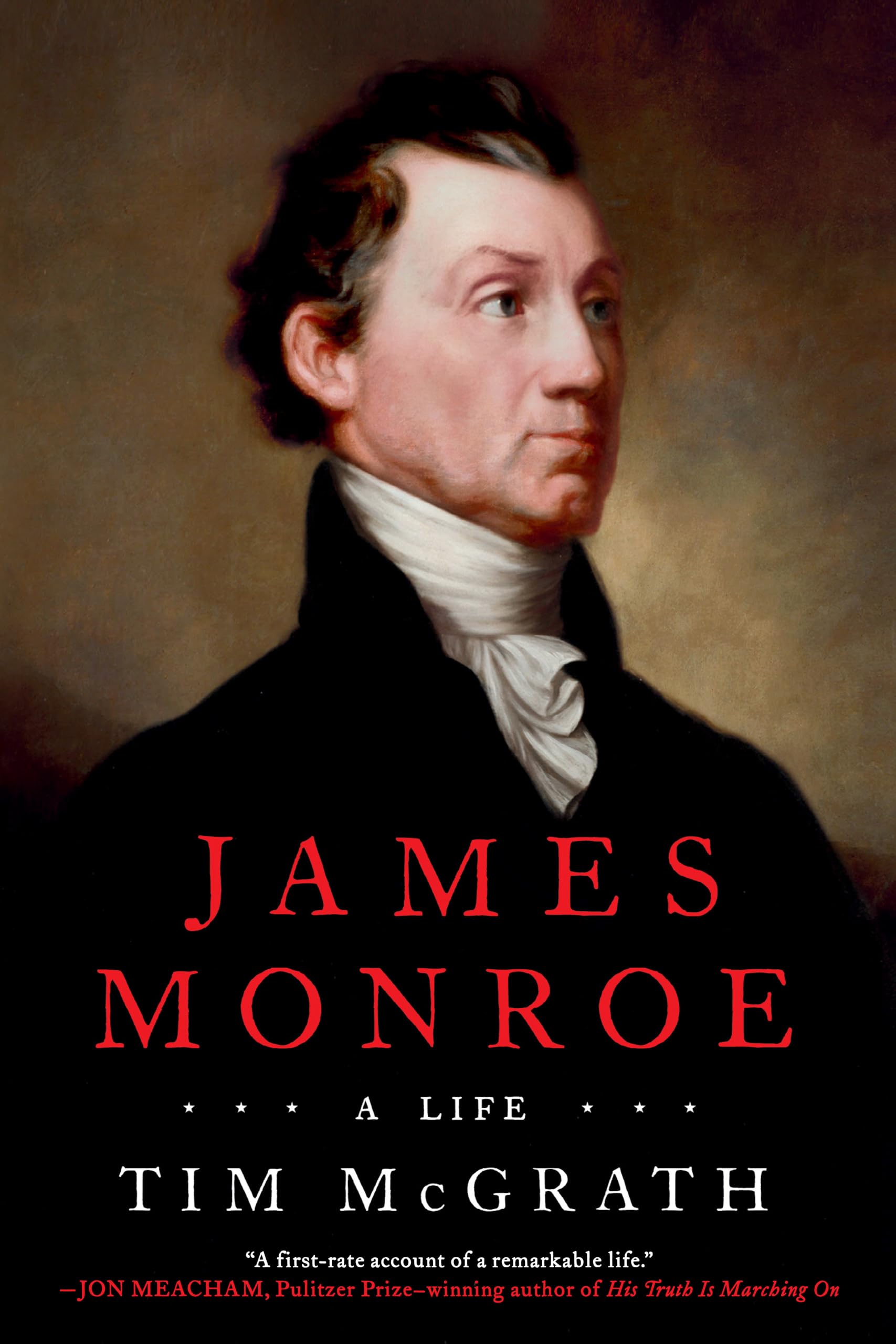
James Monroe, book cover
May 28, 2025
James Monroe by Tim McGrath Book Review
Tim McGrath’s James Monroe is a masterful and absorbing biography that brings to vivid life one of America's most underrated presidents. This is the sixth presidential biography I’ve read, and I continue to be amazed at how each one opens new dimensions to our early leaders. Monroe, in particular, turns out to be far more interesting and complex than I ever realized—and McGrath captures it all with clarity, insight, and elegance.
Monroe isn’t just a footnote between Madison and John Quincy Adams—he’s a pivotal figure in the shaping of the early republic. While often overshadowed by bigger names, Monroe held the nation together during one of its most fragile moments. His presidency, though marked by relative peace and prosperity, was a time of deep national tensions—regional divisions, the growing issue of slavery, and questions about the future of expansion. Monroe may not have been the loudest voice in history, but his steady, pragmatic leadership was exactly what America needed.
McGrath’s narrative is deeply engaging, blending detailed historical analysis with rich storytelling. From Monroe's dual role as Secretary of State and Secretary of War during the War of 1812 to the launch of the Monroe Doctrine, the book illustrates a man of deep commitment to national unity and republican ideals.
I was surprised by several remarkable details: Monroe had the first outdoor presidential inauguration. He began the reconstruction of the White House with just $281 after it was burned by the British. And though part of the so-called “Virginia Dynasty,” he felt distinct—more soldier than philosopher, more doer than dreamer.
The book also offers touching and humanizing moments, especially through the portrayal of his wife, Elizabeth Kortright Monroe. A refined and cosmopolitan woman, Elizabeth brought a sense of dignity and discretion to the White House, but her chronic illness often kept her out of the public eye. Their marriage was strong, and the affection between them shines through McGrath’s pages.
One of the most poignant facts I learned was about Monroe’s final resting place. Originally buried in New York after his death in 1831, his body was later exhumed and reinterred in Richmond, Virginia—so he could be laid to rest beside his beloved wife. That single act tells you so much about the man behind the public legacy.
McGrath handles Monroe’s contradictions with honesty and care, exploring his views on slavery, race, and expansion without simplifying or excusing. The book doesn't shy away from complexity—it embraces it, which makes it all the more rewarding.
James Monroe may be one of the most underappreciated figures in American history, but McGrath’s biography helps restore the respect he deserves. If you’re interested in American history, leadership, or the formation of a nation, James Monroe is a must-read. It’s one of the finest presidential biographies I’ve encountered—thoughtful, vivid, and just plain great storytelling.